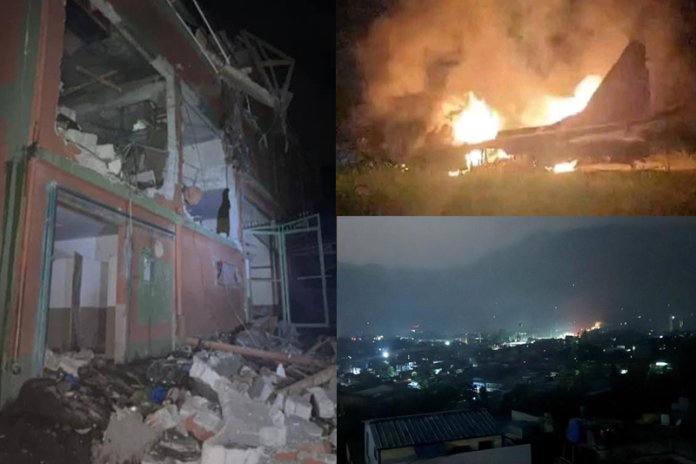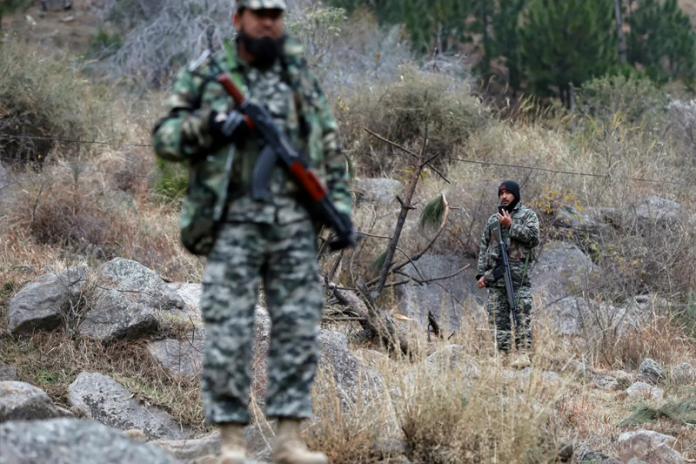Heatwaves: tree plantation must be given special attention

- 268
- 0
The Met forecast says that the country is going to face hot summer this year as the northern areas of Khyber-Pakhtunkhwa and most areas of Gilgit-Baltistan will receive less than normal rainfall. The meteorological department has released the weather forecast for March, April and May. According to the Meteorological Department, rains will be normal in most parts of the country. It further says that apart from March, there are chances of heat wave in April and May. Extreme weather patterns have become a new normal in Pakistan due to climate change effects and one way to deal with it is to plant more and more trees. This indicates that hot weather conditions are likely to stay in Karachi as well most of this summer. The reason behind this weather phenomenon is said to be the high pressure area built over Afghanistan and Balochistan in February last. More importantly, this pressure has maintained its intensity which is why hot weather may persist for the whole of current month unless a drastic change occurs in weather pattern.
And most significantly, the maximum temperature at times is likely to be ranging between 42°C and 44°C.
In this backdrop, heat management plans are need of the hour.
As a matter of fact, when take into account the weather conditions of last decade, the sweltering heat waves seem to have become a common occurrence in Karachi and is likely to stage a comeback this summer too and stay for days every time.
On the other hand, the increased load-shedding and numerous power outages will further add to the misery of the people.
Weather experts say that deadly heat waves are going to be country’s much bigger socio-economic and health problem in the coming decades, particularly in densely populated urban areas of the country. The global warming-induced extreme weather events are becoming more frequent and occurring over a much greater portion of the country. But devastating fallouts of heatwaves on humans can be largely mitigated through timely and effective responsive measures. Experts say that Pakistan is most likely to suffer more frequent and intense heatwaves as the average temperatures in the country are constantly increasing. Heatwaves matter because they kill people through heat stress, cause forest fires, reduce crop yields and damage ecosystems, which are not adapted to high temperatures.
The World Meteorological Department’s reports reveal that annual average temperature in the country has jumped up by roughly 0.5°C, which has led to five-fold rise in heatwave days over last 30 years. Besides, the country’s annual temperature is well on path to rise by 3°C to 5°C due to a heat-trapping global carbon emission. Such dangerously rising trends in temperatures will potentially continue to cast various negative effects on the country’s human health, spike frequency and intensity levels of extreme weather events including heatwaves, cloudbursts, floods, glacial melt, agricultural productivity, water availability, coastal erosion and seawater incursion. It may be mentioned here that humans are adapted to body temperatures of around 37°C. If humidity - the levels of water vapour in the air - goes up with the thermometer, then people caught in a zone of extreme heat cannot adjust body temperatures by perspiration. As a matter of fact, with every 1°C rise in temperatures, the capacity of the air to hold moisture goes up by 7 per cent. People with no access to air conditioning or a cool breeze become, however, at high risk.
A study published in the Nature Climate Change Journal says that 783 heatwave incidents in 164 cities from 36 countries including Pakistan indicate that about 30% of the world’s population (and about 13% of the land area) experiences at least 20 days per year on which the deadly threshold is reached.
It is pointed out that increasing temperatures and humidity levels would combine to ratchet up the intensity and frequency of deadly heatwaves in various countries including Pakistan, India, and Afghanistan.
Nonetheless, the good news is that heatwaves are quite predictable, and “extreme temperature early action systems as being practiced in Karachi have proven that they can save lives in the heatwave-vulnerable areas of the country.
It is suggested that that building capacity of individuals and communities to respond to the heat stress during heatwaves by raising heat health awareness campaigns in the country before the onset of heatwaves season can be of great help to cope with the fallouts of the heatwaves on the health of people. Experts also underline the need for district-wise heatwave management plans comprising measures including no or reduced power outages, sustained provision of water, healthcare facilities in hospitals and establishment of roadside public shades to stave off human losses from their impacts.
All we have to do is focus on measures to stop the loss of human lives and effects on human health in heatwaves and also to stop the damage to crops and livestock which too are prone to such heat conditions.
One way to do so is to focus on tree plantations drives.
There is a suitable weather for spring in Pakistan. There have been campaigns campaigning for years. Millions of plants are planted every year, but not protecting them, the desired goals are not achieved. In the early years of the establishment of Pakistan, the measures to plant trees at various levels and to increase their interest in their protection remained particularly difficult, but on the contrary, the loss of trees on the large scale is the forefront. Geologists say that in any country it must have at least 16 % of the forest in terms of its total area, while we have the rate of only about 3 or 4 %. Out of the total loss of forests, 33.2 % is being attributed to the timber mafia. As much as Pakistan’s sticky lush is important for the future, the need for the future can be gauged from the continuous warnings of national and international organizations related to climate change, which in the coming years is going to result in rising temperatures and severe water shortages.
The dangers are looming large in near future. If in the past, the forests were not brutally cut and the plants were properly protected, the situation would have been radically different today. With the new planting of the spring 2023, focus on the cultivation of baby turtle trees is also essential and the campaign should be given a continuous process. Most trees should be planted. In addition to the roadside and other places, the plants and vegetables in houses also need to be given a public hobby.
Published in The Daily National Courier, March, 07 2023
Like Business on Facebook, follow @DailyNCourier on Twitter to stay informed and join in the conversation.

















































